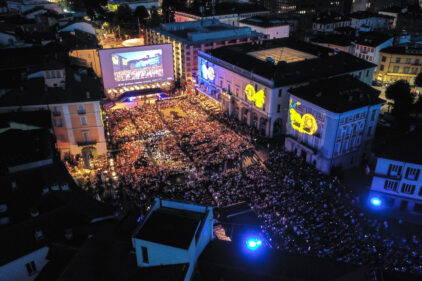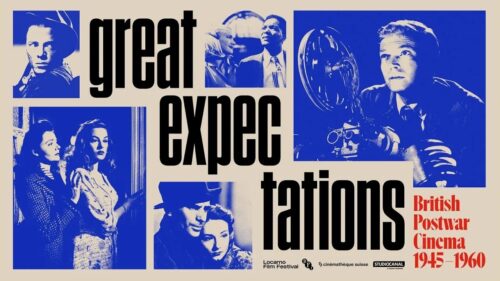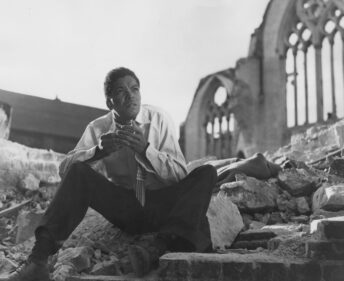The awards for the Un Certain Regard sidebar were announced last night, and the top prize went to “Rams,” an Icelandic charmer about two sheep-breeding brothers who, despite their semi-estrangement from one another, stubbornly resist slaughtering their family flock amid an outbreak of scrapie, the lamb equivalent of mad-cow disease. It’s not as though the movie asks viewers to root for a public-health debacle: The siblings are really just clinging to a way of life, despite the animosity between them.
That ceremony was just a warm-up for tonight’s main awards. And I still think the Palme will go to “Son of Saul,” for the simple reason that it came out of nowhere—Hungarian filmmaker László Nemes, a Béla Tarr protégé, would be the first first-time feature director to win the Palme since Steven Soderbergh in 1989—and blindsided viewers with its audacity and approach to representing the Holocaust onscreen. Although the film’s gambit of exploring a concentration camp in a first-person style made me uneasy, the close-cropped, shallow-focus cinematography reflects the myopia that allows the protagonist to function in the Sonderkommando.
I’m rooting for an award for “The Assassin,” directed by Taiwan’s long-overdue Hou Hsiao-Hsien, who should have received the Palme in 1998 for “Flowers of Shanghai.” Perhaps part of the reason Hou has struggled to win is that he’s an acquired taste, with an approach to narrative that’s all his own: He’s less concerned with characters than with the spaces between them; he often elides major plot points or alludes to them in passing. The film’s chances might be significantly improved If the jury saw it twice, as it the story plays much more straightforwardly the second time around. Seeing Hou’s use of screen geometry applied in a martial-arts context—or, par for the course with this director, a context in which occasional martial arts is a disruption from oblique, slow-boiling intrigue—is nothing short of thrilling. Peg this one for Best Director, though I could easily see the jury swapping it with “Son of Saul.”
Another film that pushed my admiration into ardor on second viewing, Todd Haynes’s “Carol” deserves a major prize, and it’s an obvious choice for a shared Best Actress award (although Rooney Mara, playing a character whose drama is more internalized than Cate Blanchett’s, deserves it on her own). The way in which Haynes lays out the unspoken dynamic between two women is exquisite, with much of the heavy lifting done not by dialogue but by glances and gestures.
On Best Actor, the heavy favorite is Vincent Lindon in “The Measure of a Man,” as a French family man struggling to pay his bills and break back into the job market, though the performance is pretty low-key. (It’s one of several movies in this year’s official selection that concern the virtues and limits of French liberalism.)
As for the Grand Jury Prize (second place) and Best Screenplay, my prediction is that the jury could flip them either way between Denis Villeneuve’s “Sicario” and Yorgos Lanthimos’s “The Lobster.” Screenplay seems like the obvious place to honor Lanthimos’s film, which has a somewhat lead-footed Charlie Kaufman–style conceit. “Sicario” has friends on the jury (it was shot by longtime Coen collaborator Roger Deakins, and Jake Gyllenhaal just starred in Villeneuve’s “Enemy” and “Prisoners“), and Grand Jury Prize seems like a way to honor the film’s craft without courting too much of a charge of favoritism. But if “Carol” wins big, expect Emily Blunt to take a dark-horse Best Actress award.












